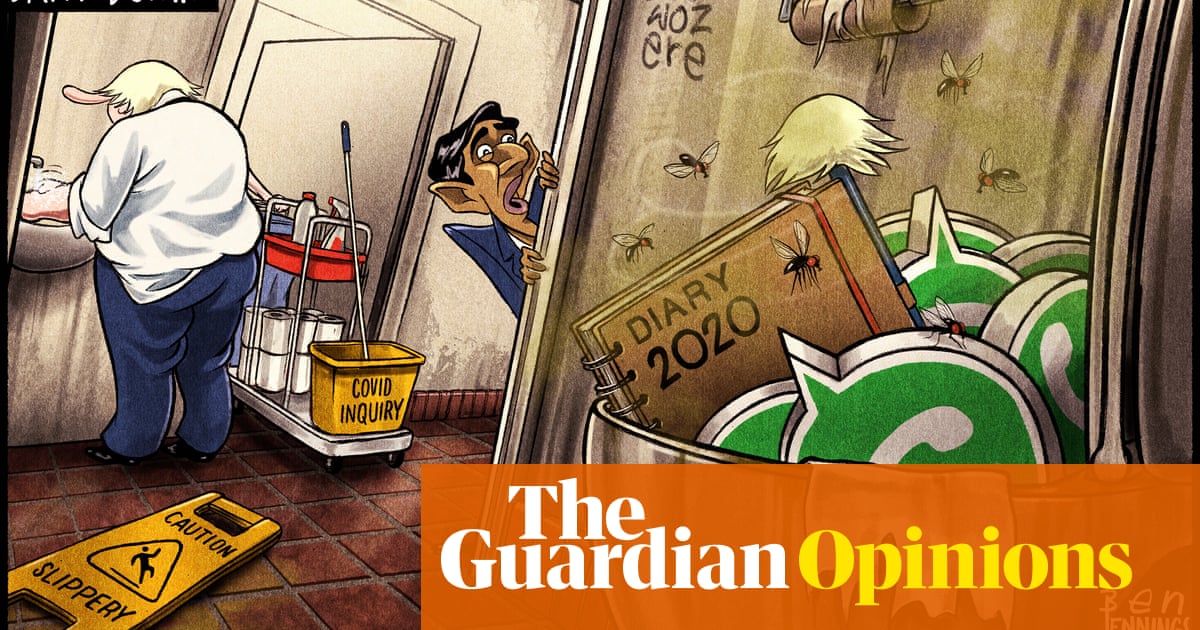
he new three-tier system to classify Covid risk puts me in mind of a rubber sandwich. It isn’t the most obvious association, so I’ll explain.
In 1896, New York was gripped by moral panic over uncontrolled boozing in the city’s infamous saloons. The state legislature passed Raines law (written by a senator of that name) restricting alcohol sales. One measure among many was to limit Sunday licences to establishments that offered food.
The saloons responded by keeping a token sandwich behind the bar, which each punter would buy as a proxy for the drink that could then legally be served alongside it. Police looked the other way. In one reported incident officers did intervene, but on the side of a bar owner who was trying to stop a hungry customer eating the token communal sandwich. Over time, that stale crust of real bread was replaced with a more durable model, made of rubber.
That loophole is not open in the UK government’s newest Covid regulations. Pubs in the highest-risk areas can stay open if they provide food, but it has to be the real deal, “such as might be expected to be served as the main midday or main evening meal”. Time will tell whether that definition can withstand subterfuge and satire.
The situations are not analogous. The demon drink is a social ill, not a communicable pathogen. But the failure of Raines law still contains a lesson for Boris Johnson about the perils of directing human behaviour by statute. The New York state senate could not transplant temperance spirit into the heads of thirsty labourers, nor did it want to shut down every bar in town. The food exemption was a convoluted way of hoping that people would behave more responsibly, which is not an ambition easily expressed in law. The result was disobedience and absurdity.
Johnson wants people to act responsibly and he doesn’t want to shut the saloons. In that preference he is guided by libertarian gurgling in his tummy and by fear of laying waste the hospitality industry. He also has to manage a lockdown-sceptic Tory faction in parliament, egged on by media commentary that has, in some quarters, taken against public health regulations with a zeal more common to Montana militias resisting gun control.
Medical expertise has been pushing the prime minister in the opposite direction. Minutes from the government’s Sage committee of experts, published on Monday, contain the list of drastic recommendations put to government weeks ago, and rejected. Johnson’s policy is marooned between his party’s impatience to unlock and scientific counsels of caution.
Rules written in that place are vulnerable to the rubber-sandwich effect because there will not be a big enough coalition of people to evangelise for them. It is not sufficient simply to proscribe activities that are embedded in the culture and bound to people’s sense of identity and wellbeing. Compliance in those cases needs a strong tailwind of communal advocacy. It requires a cumulative herd effect – enough people being persuaded to change their behaviour; being seen to change and disapproving of people who refuse to change.
That is how laws become norms. But it always takes time. Drink-driving was illegal for decades before it was widely frowned upon. The government can’t wait that long for Covid-safe practices to mulch down into a moral and social consensus. Draconian enforcement is one option for speeding things along, but that needs buy-in from the police. And they might lack the resources or the inclination to treat as felons a group of seven friends who meet when they should be only six. What if there are four in the front garden, three round the back?
This is a different issue to the complexity of variable lockdowns. The new three-tier classification is meant to rationalise what had become a confusing patchwork of containment regimes, but any system would generate absurdities on the boundary between the spirit and the letter of the law. A literal reading of any rule that imposes clinical discipline on messy human social life invites ridicule.
The edifice only stands up if enough citizens support it with an ethos of self-restraint and civic duty, which is harder to inculcate when the prime minister radiates disregard for those virtues. Even as he announced the latest restrictions, Johnson issued a tacit licence for disobedience by describing them as “erosions of liberty”. Those visible flinches, like the claim that pandemic rules cut against the grain of “freedom-loving” British culture, discredit the rules even as he writes them.
Downing Street knows there is a problem with depleted public patience and trust, but has no method for replenishing the supply. That awareness can be heard in the self-pitying inflection of Johnson’s voice whenever he accuses Keir Starmer of failing to support his efforts, as if the opposition drawing attention to serial government incompetence isn’t playing fair.
The same desperate cadging of authority was on display in the conspicuous praise heaped on Liverpool’s Labour mayor, Steve Rotheram, for working with the government on the latest measures, and the implied threat that central government resources will be withheld from less cooperative regional authorities. The prime minister wants cover from institutions that have more political legitimacy than he alone can summon in the areas facing the biggest Covid crisis.
The nub of the problem is the congenital aversion to responsibility that has been the trademark of Johnson’s every endeavour in his professional and personal life. His usual method has been to keep moving fast enough, so the mess and chaos is always behind him for someone else to clear up. But time stands ominously still in this pandemic. We have cycled back to the beginning, except the nights are now drawing in. The prime minister is further from the warm embrace of his party and he has let go of the guardrail of scientific advice. He is more exposed. It is a cold place to be with only a rubber sandwich for sustenance.
• Rafael Behr is a Guardian columnist












